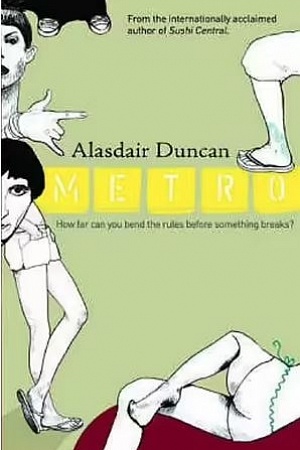A Lonely Girl Is A Dangerous Thing
Allen & Unwin, $29.95 pb, 290 pp
A Lonely Girl Is A Dangerous Thing by Jessie Tu
What a title, and what a début novel. Jessie Tu brings us Jena Lin, a twenty-two-year-old Asian Australian sex addict who was once a violin prodigy fêted around the world. She is a character to remember. The reader knows this from the beginning, and the compelling narrative tension is driven by the slow revelation of an event that occurred seven years before the novel begins.
This is an exploration of sex, but from a perspective rarely – if ever – surveyed this way in literature. Here we explore sex and sex addiction from a woman’s perspective; we are spared no details, including masturbation and violent pornography. This work intends to make a statement, which is to be expected from a literary novel with ‘cunt’ on the first page. In A Lonely Girl Is a Dangerous Thing, Tu takes us through the shame and danger that can be part and parcel of extreme sex with strangers, but she also makes clear that there can be moments of tenderness and a path to empowerment.
While sex is central to the story, Tu does not let it overwhelm the other themes she confronts head on. This is a work that explores the weight of giftedness. What is the life of a child prodigy? What choices do they have? And what can they become? A Lonely Girl Is a Dangerous Thing also provides a steady stream of observations and commentary about race, gender, sexual mores, female friendship, and the failures of family. Tu’s observations about race are particularly relevant given the questions reverberating around the world in 2020.
The language is deft and the detail brilliant – the character of Jena Lin feels alive on the page. Jena’s choices, questions, and motivations are fascinating, and her constant practising of the violin only a moment away.
With A Lonely Girl Is A Dangerous Thing, Tu has made a remarkable and strong entry into the national literary scene. Tu herself trained as a classical violinist, and, as with all first novels, one can’t help but wonder how much of her is in this work. That said, this is not Tu’s first work. In 2018 she published her first poetry collection, You Should Have Told Me We Have Nothing Left.














Leave a comment
If you are an ABR subscriber, you will need to sign in to post a comment.
If you have forgotten your sign in details, or if you receive an error message when trying to submit your comment, please email your comment (and the name of the article to which it relates) to ABR Comments. We will review your comment and, subject to approval, we will post it under your name.
Please note that all comments must be approved by ABR and comply with our Terms & Conditions.